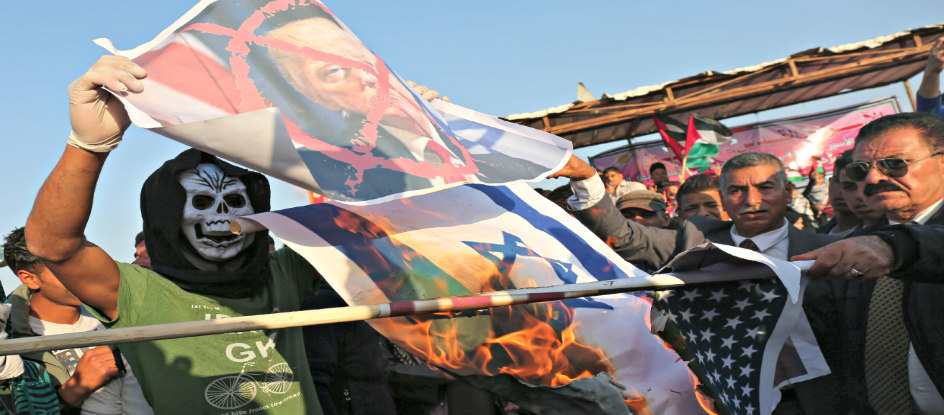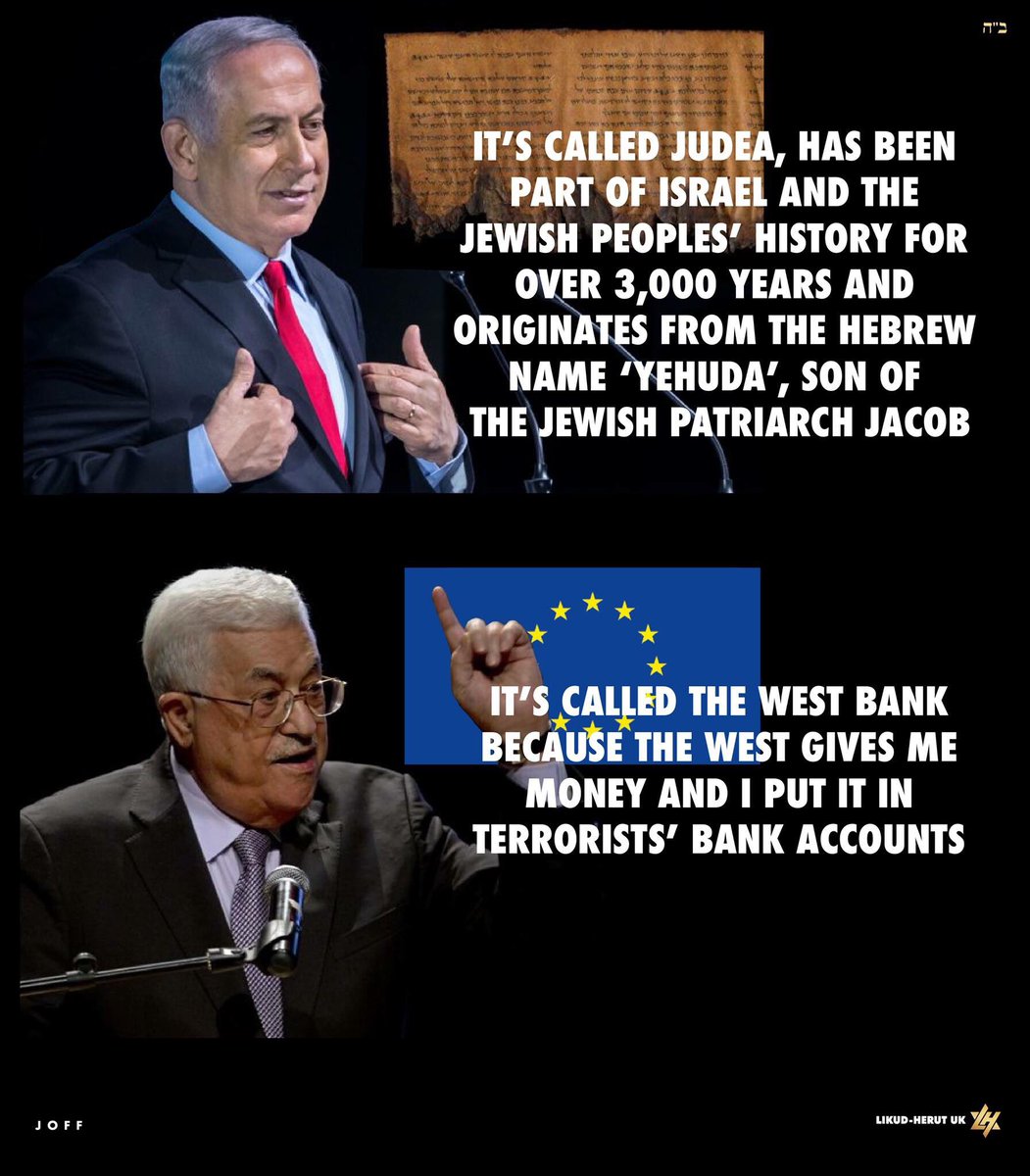This 1999 memo by then-ambassador David Hale,
published in Wikileaks, has a lot of resonance today as well. It shows how endemic discrimination is against Palestinian citizens of Jordan and how the fictional "right of return" is used to keep that discrimination in place.
_______________________________
1. (C) Summary: The right of return for Palestinians is one of the issues at the heart of the debate over what it means to be Jordanian. Though our GOJ interlocutors insist that the theoretical option of return remains, they are now more engaged with the issue of compensation, both for individual Palestinians and for Jordan itself. For Jordanians of Palestinian origin, the right of return is either an empty (if cherished) slogan or a legitimate aspiration.
For East Bankers, the right of return is often held up as the panacea which will recreate Jordan's bedouin or Hashemite identity.
The issue is inextricably linked with governmental and societal discrimination toward the Palestinian-origin community, and poses a challenge to Jordan's political reforms. Jordanians of Palestinian origin (and many, but not all, of the East Bankers we speak to)
assume that an end to
the question of the right of return will lead to equal treatment and full political inclusion within Jordan. Yet
neither East Bankers nor Palestinians are willing to make the first move toward publicly acknowledging this "grand bargain." In the absence of public debate -- which would be both highly sensitive and taboo-breaking -- or government action, the issues surrounding the right of return will continue to fester. In the absence of a viable and functioning Palestinian state, those who are charged with protecting the current identity of the Jordanian state will be loath to consider measures that they firmly believe could end up bringing to fruition the nightmare scenario of "Jordan is Palestine." End Summary.
Government Strategy: Compensation Trumps Return
--------------------------------------------- ---
2. (C) The Jordanian government's official stance on the right of return has changed very little over the years. The MFA's current position paper on the matter notes that "refugees who have Jordanian citizenship expect the State to protect their basic right of return and compensation in accordance with international law." As recently as January 23, the King reiterated the standard line in an interview with the Al-Dustour newspaper: "As for the Palestinian refugees in Jordan, we stress once again that their Jordanian citizenship does not deprive them of the right to return and compensation."
....
4. (C) Deputy Director of the Department of Palestinian Affairs Mahmoud Agrabawi, whose agency works closely with UNRWA in the refugee camps, told us that the most important thing is that Palestinians be given the choice of whether to go back or not. He declined to estimate how many would want to exercise that right, but he did raise a point about internal differences of status among the refugee population in Jordan. Those who are most likely to want to leave are the impoverished residents of refugee camps in Jordan - most of whom are Palestinians (or their descendants) who fled in 1948 from what became the State of Israel. (Note: Roughly 330,000 of the 1.9 million Palestinian refugees in Jordan live in camps. About half of those living in camps originated from Gaza and, therefore, do not hold Jordanian citizenship. End note.)
They will not, however, want to return to a Palestinian state in the West Bank and Gaza because they would be unable to reclaim their ancestral homes inside Israel, and thus would in a sense (albeit not a legal one) merely become refugees in a new country, said Agrabawi.
Palestinian Expectations: The Dream and the Reality
--------------------------------------------- ------
7. (C) When it comes to thinking about the right of return, Palestinians in Jordan fall into roughly two camps. In the first are those who align themselves with the government approach, keeping up the rhetoric for the sake of appearances, but behind closed doors quickly abandoning return as a political and logistical impossibility. This group is more concerned about personal compensation (and doubts that Jordan would ever have the chutzpah to ask for "structural" compensation). In the second camp are those who cling to the principle. For the most part, this latter view is probably most prevalent among refugee camp residents who hope to be plucked out of landless poverty by a peace agreement and the compensation that may come with it. It is difficult, if not impossible, to determine the breakdown of how many people are in each group. Note: As noted in Ref B,
polling on Palestinian-origin versus East Banker political preferences in Jordan is taboo, because it acknowledges uncomfortable truths about the divide within Jordan's national identity. End Note.
....9. (C) As noted, however, the principle of the right of return still holds considerable sway among others. "There is no question about the right of return. It is a sacred right," contends Palestinian-origin parliamentarian Mohammed Al-Kouz. During a meeting with Amman-resident PNC members, one contact said: "The right of return is my personal right, and my humanitarian right." Indeed, this is how many Palestinian-origin contacts in Jordan think about the right of return - as something they are owed as part of a de facto social contract supported by Arab politicians and enshrined in UN Security Council and General Assembly resolutions for 60 years.
East Banker Expectations: Waiting for Their Country Back?
--------------------------------------------- ------------
11. (C) East Bankers have an entirely different approach to thinking about the right of return. At their most benign, our East Banker contacts tend to count on the right of return as a solution to Jordan's social, political, and economic woes. But underlying many conversations with East Bankers is
the theory that once the Palestinians leave, "real" Jordanians can have their country back. They hope for a solution that will validate their current control of Jordan's government and military, and allow for an expansion into the realm of business, which is currently dominated by
Palestinians.
12. (C) Palestinian-origin contacts certainly have their suspicions about East Banker intentions. "If the right of return happens, East Bankers assume that all of the Palestinians will leave," says parliamentarian Mohammed Al-Kouz. Other Palestinian-origin contacts offered similar observations, including Adel Irsheid and Raja'i Dajani, who was one of the founding members of the GID, and later served as Interior Minister at the time of Jordan's administrative separation from the West Bank in 1988. Dajani cited the rise of what he called "Likudnik" East Bankers, who hold out hope that the right of return will lead to an "exodus" of Palestinians.
13. (C) In fact,
many of our East Banker contacts do seem more excited about the return (read: departure) of Palestinian refugees than the Palestinians themselves. Mejhem Al-Khraish, an East Banker parliamentarian from the central bedouin district, says outright that the reason he strongly supports the right of return is so the Palestinians will quit Jordan. East Banker Mohammed Al-Ghazo, Secretary General at the Ministry of Justice, says that Palestinians have no investment in the Jordanian political system - "they aren't interested in jobs in the government or the military" - and are therefore signaling their intent to return to a Palestinian state.
14. (C)
When East Bankers talk about the possibility of Palestinians staying in Jordan permanently, they use the language of political threat and economic instability. Talal
Al-Damen, a politician in Um Qais near the confluence of Jordan, the Golan Heights and Israel, worries that without the right of return, Jordan will have to face up to the political challenges of a state which is not united demographically. For his part, Damen is counting on a mass exodus of Palestinians to make room for East Bankers in the world of business, and to change Jordan's political landscape. This sentiment was echoed in a meeting with university students, when self-identified "pure Jordanians" in the group noted that "opportunities" are less available because there are so many Palestinians.
The Nexus Between the Right of Return and Discrimination
--------------------------------------------- -----------
17. (C)
The right of return in Jordan is inextricably linked with the problem of semi-official discrimination toward the Palestinian-origin community. Braizat claims it is "the major reason that keeps the Jordanian political system the way it is." As long as the right of return is touted as a real solution, East Bankers will continue to see Palestinians as temporary residents in "their" country. This provides the justification to minimize the role of Palestinian-origin Jordanians in public life, since they are "foreigners" whose loyalty is suspect and who could in theory pack up and leave at any time.
Note: The suspicion of disloyalty is deeply rooted in Black September, when Palestinian militants attempted to wrest political control from the Hashemite regime. Since then, Palestinians have been progressively excluded from the Jordanian security forces and civil service (Ref D). End Note. The suggestion that Palestinians should be granted full political representation in Jordan is often met with accusations that doing so would "cancel" or "prejudge" the right of return. For their part, many Palestinian-origin Jordanians are less concerned with "prejudging" the right of return, and more concerned with fulfilling their roles as Jordanian citizens who are eligible for the full range of political and social rights guaranteed by law.
18. (C) Al-Quds Center for Political Studies Director Oraib Rantawi, whose institute has been organizing refugee camp focus groups, cites
widespread discrimination that is semi-officially promoted by the government. In his estimation, the prospect of a "return" to Palestine is linked to the sense that Palestinian-origin Jordanians are
"not Jordanian enough to be full citizens." He asserts that this sentiment on the part of the ruling elite is increasingly trumping the idea of right of return as the primary political concern among Palestinian-origin Jordanians. According to Rantawi (and many other contacts), the sense of alienation is most widespread among the poorer, more disenfranchised Palestinians of the refugee camps, but he cited growing alienation among the more integrated and successful Palestinians in Jordan. "Palestinians feel that something is wrong, whether they live in a refugee camp or (the upscale Amman district of) Abdoun. We have to take Palestinians out of this environment," says former minister Irsheid. This tracks with the conventional wisdom which theorizes that an integrated Palestinian-origin community would have a stake in what happens in Jordan, and therefore less reason to be perceived as a threat.
20. (C) While Jordanians of Palestinian origin are not shy about their origins, many stress just as strongly their strong connections and loyalty to Jordan. Jemal Refai says, "I consider myself Jordanian. Nobody can tell me otherwise." Mohammed Abu Baker, who represents the PLO in Amman, says, "if you tell me to go back to Jenin, I won't go. This is a fact - Palestinian refugees in Jordan have better living conditions." PNC member Isa Al-Shuaibi simply notes that
"Palestinians in Jordan are not refugees. They are citizens."
21. ....Many of our contacts resent the "Palestinian-origin" label that appears on their passports
and national identity cards. ....
A Grand Bargain?
----------------
22. (C) A common theme that emerges from discussions with Palestinian-origin contacts and some government officials (although not necessarily East Bankers as a group) is
a "grand bargain" whereby Palestinians give up their aspirations to return in exchange for integration into Jordan's political system. For East Bank politicians and regime supporters, this deal could help solve the assumed dual loyalty of Palestinians in Jordan. For Palestinian-origin citizens, the compact would, ideally, close the book on their antagonistic relationship with the state and open up new opportunities for government employment and involvement in the political process.
23. (C)
"If we give up our right of return, they have to give us our political rights," says Refai. "In order for Jordan to become a real state, we have to become one people." ...
24. (C) If a peace agreement fails to secure political rights for Palestinian-origin Jordanians as they define those rights, many of our contacts see the right of return as an insurance policy through which Palestinians would vote with their feet. Refai asks: "If we aren't getting our political rights, then how can we be convinced to give up our right of return?" Palestinian-Jordanian Fuad Muammar, editor of Al-Siyasa Al-Arabiyya weekly, noted that in the past few years there has been a proliferation of "right of return committees" in Palestinian refugee camps. This phenomenon, he said, reflected growing dissatisfaction with Jordanian government steps to improve their lot here and an increased focus on Palestine.
We have lots of ideas, but we need more resources to be even more effective. Please
donate today to help get the message out and to help defend Israel.

 Elder of Ziyon
Elder of Ziyon

































